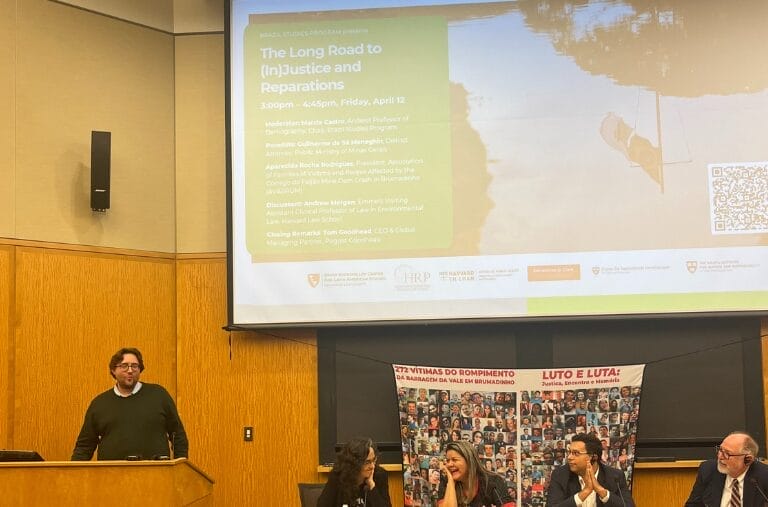In September 2020 NHS England commissioned an Independent Review of Gender Identity Services for Children and Young People to be led by Dr Hilary Cass.
The Final Cass Report was published in April 2024, over three and a half years later, and two years after her Interim Report was published. The purpose of the review was to assess the current framework of gender dysphoria treatment services for young people and make recommendations as to how the service model and clinical approach should be improved going forward.
The Review underscores the significance of providing young people with gender dysphoria access to high quality evidence-based medical treatments. Dr Cass notes a significant increase in the number of young people seeking treatment for gender dysphoria, particularly among birth-registered females who now make up a significant number of the cohort.
Dr Cass highlights the importance of clinicians recognising that pathways and outcomes for patients in this group will be very individual “Too often this cohort are considered a homogenous group for whom there is a single driving cause and an optimum treatment approach, but this is an over-simplification of the situation. Being gender-questioning or having a trans identity means different things to different people. Among those being referred to children and young people’s gender services, some may benefit from medical intervention and some may not. The clinical approach must reflect this” and for most young people, a medical pathway will not be the best way to manage their gender-related distress.
The evidence base
The University of York was tasked by the Review to conduct a review of the scientific literature. Their findings revealed that a significant number of published clinical studies lacked the necessary quality for any reliable conclusions to be drawn. The evidence was described by Dr Cass as ‘remarkably weak’ and was so poor that it could not be used to make reliable clinical decisions, or for children and their families to make informed choices.
Furthermore, they noted a lack of long-term data, posing challenges for clinicians in providing accurate guidance on the long-term outcomes of treatment options, as they typically would in other medical disciplines.
The Review endeavoured to collaborate with gender clinics to address some of the gaps in follow-up data for the approximately 9,000 individuals treated at GIDS clinics. However, NHS England notified the Review in January 2024 that cooperation from the gender clinics had not been forthcoming.
Looking specifically into the clinical studies on the effects of puberty blockers, as well as feminising and masculinising hormones, the Review identified several noteworthy findings:
“The Review’s letter to NHS England (July 2023) advised that because puberty blockers only have clearly defined benefits in quite narrow circumstances, and because of the potential risks to neurocognitive development, psychosexual development and longer-term bone health, they should only be offered under a research protocol. This has been taken forward by NHS England and National Institute for Health and Care Research (NIHR).
The University of York also carried out a systematic review of outcomes of masculinising/ feminising hormones. Overall, the authors concluded that “There is a lack of high-quality research assessing the outcomes of hormone interventions in adolescents with gender dysphoria/incongruence, and few studies that undertake long-term follow-up. No conclusions can be drawn about the effect on gender dysphoria, body satisfaction, psychosocial health, cognitive development, or fertility. Uncertainty remains about the outcomes for height/growth, cardiometabolic and bone health. There is suggestive evidence from mainly pre-post studies that hormone treatment may improve psychological health, although robust research with long-term follow-up is needed”.
It has been suggested that hormone treatment reduces the elevated risk of death by suicide in this population, but the evidence found did not support this conclusion.”
Recommendations made by the Cass Review
In total, 32 recommendations were made in the report by Dr Cass’s team. Some of the key recommendations include:
- Children and young people accessing these services must receive the same standards of care as children accessing other services within the NHS.
- Waiting lists should be reduced so that children can be seen as early as possible by a clinical professional with relevant experience.
- A holistic assessment of their needs is required to inform an individualised care plan. This includes children and young people being screened for neurodevelopmental conditions including autism spectrum disorder and a mental health assessment.
- Every case considered for medical treatment should be discussed at a national Multi-Disciplinary Team meeting.
- The evidence base underpinning medical and non-medical interventions in this clinical area must be improved. Following Dr Cass’s earlier recommendation to establish a puberty blocker trial, which has been taken forward by NHS England, they further recommend a full programme of research be established. This should look at the characteristics, interventions and outcomes of every young person presenting to the NHS gender services.
- NHS England should review the policy on masculinising/feminising hormones. The option to provide masculinising/feminising hormones from age 16 is available, but the Review would recommend extreme caution. There should be a clear clinical rationale for providing hormones at this stage rather than waiting until an individual reaches 18.
- All children should be offered fertility counselling and preservation prior to going onto a medical pathway.
- To increase the available workforce and maintain a broader clinical lens, joint contracts should be utilised to support staff to work across the network and across different services. Staff should maintain a broad clinical perspective by working across related non-gender services within the tertiary centre.
- NHS England should establish follow through services for 17-25-year-olds at each of the Regional Centres, either by extending the range of the regional children and young people’s service or through linked services, to ensure continuity of care and support at a potentially vulnerable stage in their journey. This will also allow clinical, and research follow up data to be collected.
- NHS England should ensure there is provision for people considering detransition, recognising that they may not wish to reengage with the services whose care they were previously under.
- Children and young people accessing these services must receive the same standards of care as children accessing other services within the NHS.
Pogust Goodhead comment
“We welcome the lengthy and well thought out recommendations made by Dr Hilary Cass, which, if implemented, will ensure that the system does not continue to fail these patients. Our approach to this case has always been that medical negligence cannot be ignored. This report clearly highlights that children and young people were rushed into hormone treatment without an appropriate diagnosis and involvement of the right clinicians meaning that they were misdiagnosed and started on a treatment pathway that was not right for them. Children have suffered life-changing and, in some cases, irreversible effects from the treatment they received resulting in physical and psychological damage that they will have to live with for the rest of their life. Evidently, those patients deserve access to justice to make sure that those responsible are held to account. Whilst compensation cannot reverse the harm that has been done, it can help them to access appropriate remedies and treatments.” – Lisa Lunt, Partner, Pogust Goodhead
Pogust Goodhead is instructed to pursue clinical negligence claims in relation to gender dysphoria treatments at GIDS and other treatment providers in the UK. Find out more here.










